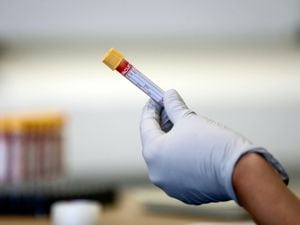Birmingham schools' Covid absence rate ‘better than national average’
The absence rate due to Covid for Birmingham schoolchildren is better than the national average, it has been revealed.

However the rate is still far higher than the average for this time of year, with an average of only 89 per cent of children attending school versus roughly 95 – 96 per cent in a normal academic year.
This week Birmingham announced that it would not be advising schools to introduce additional measures to slow the spread of Covid in the classroom, despite neighbouring council Walsall offering similar advice to its schools.
Birmingham’s on-site attendance rate for Tuesday, October 19 was 89 per cent, higher than the national average of 88 per cent being reported across the country.
And Birmingham also had a lower rate of absences due to Covid or suspected Covid, with the Covid absence rate (including confirmed, suspected, not vaccinated and other) for state funded schools being 1.7 per cent, versus the national figure of 2.8 per cent.
Walsall Council recently wrote to schools advising them to re-introduce measures such as class bubbles and staggered break times, with the national rate in the country on the rise again.
And speaking this week Professor Paul Moss, of the University of Birmingham’s Institute of Immunology and Immunotherapy, said he was concerned that the rate of infection was once again on the rise in the UK.
"It is disappointing that we are seeing higher rates of infection over the last week or two, although on the whole the death rate is relatively well-controlled,” he said.
"I am, however, concerned about the pressure on hospitals and the risk particularly to people who are immunosuppressed or immunocompromised.
"There are two factors at play here, the virus and the host.
"The Delta virus, which is the globally dominant variant, is very infectious and more than twice as contagious as the original Wuhan virus, while we, as the host, have changed our behaviour somewhat and we are interacting much more as a society.
"We also have to think about potential vaccine and immunity waning. It’s about one year since we had the vaccine, and it’s time to reappraise what they have achieved.
"The vaccine programme has been phenomenal, and the number of deaths and hospitalisations they have prevented is remarkable.
"What we are seeing now, though, is that antibody levels that developed after the second vaccine are beginning to wane and this is leading to an increase in breakthrough of infections.
"What is relatively reassuring is protection against very severe illness and death remains very high at 90 per cent, so that’s encouraging.
"However, none of the vaccines are providing what we call ‘sterilising immunity’ and we are seeing people being re-infected with this coronavirus.
"That is something we will have to live with and why a third booster is vitally important."
